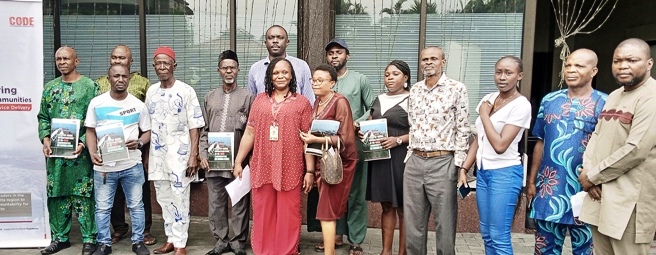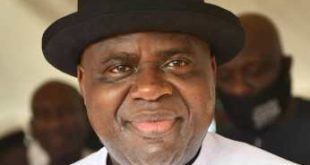By Ovundah Emmanuel
Connected Development (CODE), one of the leading civil society organizations in Africa, has urged the Rivers State government to address infrastructural decay and deficit impeding development in the state, especially in the rural and oil producing communities.
Rivers State lead for CODE, Evelyn Williams, gave the charge during a town hall meeting with CDC chairmen and various community heads in Port Harcourt over the weekend.
Williams regretted that Rivers, despite being one of the states in the Niger Delta region known for its major contributions to the development of Nigeria’s oil and gas industry, her rural communities have suffered untold hardship and prolonged conflict resulting from the negative impacts of oil exploration and tension between host communities and oil producing firms.
“In 2021, with support from Ford Foundation, CODE initiated the second phase of the project ‘Empowering Oil-Rich Communities for Improved Service Delivery (EMOC) in Rivers State, aimed at amplifying the demands of oil-rich communities through reinforcing our evidence-based advocacy strategy.
“After an appraisal to ascertain the state of social infrastructure in the region, the report shows that the primary healthcare centers (PHCs) in Rivers State are in appalling conditions, capable of undermining or sabotaging the well-being of rural dwellers and consequently, the local economy.
“Majority of the primary healthcare centers (PHCs) lack potable water, an overwhelming majority (83%) of the PHCs are disconnected or unconnected from the power supply and a significant proportion of the PHCs across the local government areas lack proper waste disposal points,” she said.
Williams said that large populations of the grassroots depend on these facilities (without adequate environmental assets), adding that citizens of the state are unable to meet the requirements and standards of education required in the twenty-first century.
She lamented that underfunding of ministries, departments and agencies (MDAs) restricts their capacity to execute and complete initiatives that benefit rural areas.
“The citizens should benefit from strategic infrastructure investments to compensate for the overt and covert effects of oil exploration since they suffer the brunt of oil extraction, loss of variety and other natural productive assets.
“CODE is calling on the Rivers State government to address personnel and infrastructural gaps in the hope of positively impacting health outcome and the education profile of the state.
“We also advocate for a comprehensive audit of social infrastructure in Rivers State, beyond the oil-producing communities to support transparent and efficient deployment of public resources and consequently improve health and education outcome.
Earlier, CODE’s programme officer, Nkem Gloria Ibeh and Ani Nwachuku, Research and Policy lead, gave the report analysis on state of basic social infrastructure in Rivers State.
In separate speeches, representatives of oil producing communities in Ahoada East, Ogba/Egbema/Ndoni, Emohua, Bonny, Degema local government areas of Rivers State, lamented lack of basic amenities and high level of infrastructural decay of existing schools, health centers and other government projects in their domains.
The community heads decried the dilapidated state of roads in their communities, stressing that their roads are either not motorable or cut off, thereby affecting social and economic activities in the areas, despite being major contributors of the nation’s economy, as they play host to various oil and gas producing companies.
Speaking at the meeting, chairman, Community Development Committee (CDC) of Umuechem Community in Etche LGA, Engr Godson Nwairoegbu said “Umuechem is the second place where oil was discovered in commercial quantity after Oloibiri. We need the state, federal and local governments to help us, we have no roads, electricity, health centres etc”.
 PH Mundial – Port Harcourt Online Newspaper News Across The Region
PH Mundial – Port Harcourt Online Newspaper News Across The Region





